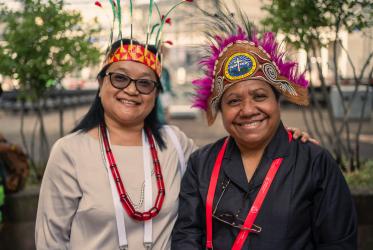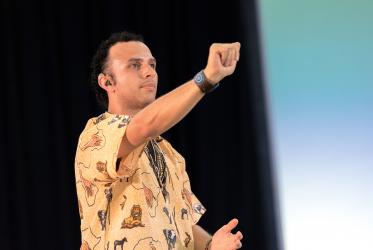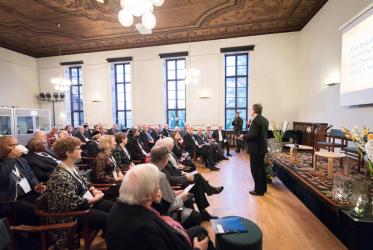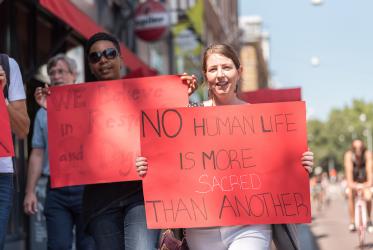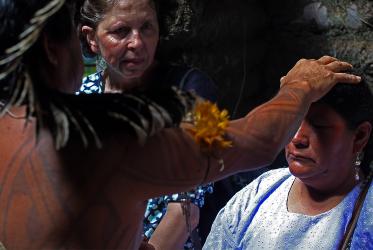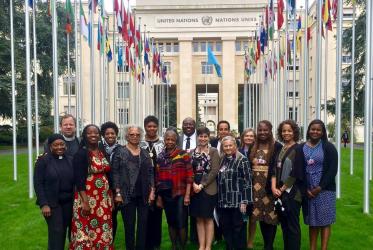Displaying 1 - 20 of 55
23 October 2023
Christian communicators work to counter hate speech against refugees
10 December 2018
US Catholic bishops approve pastoral letter against racism
19 November 2018
WCC Executive Committee envisions future for one ecumenical movement
08 November 2018
WCC executive committee tackles public issues
07 November 2018
Konrad Raiser shares ecumenical journey of transformation
06 February 2018
#WCC70: A story of how we meet together
02 February 2018
“The work of truth-telling has to happen”
28 September 2017


